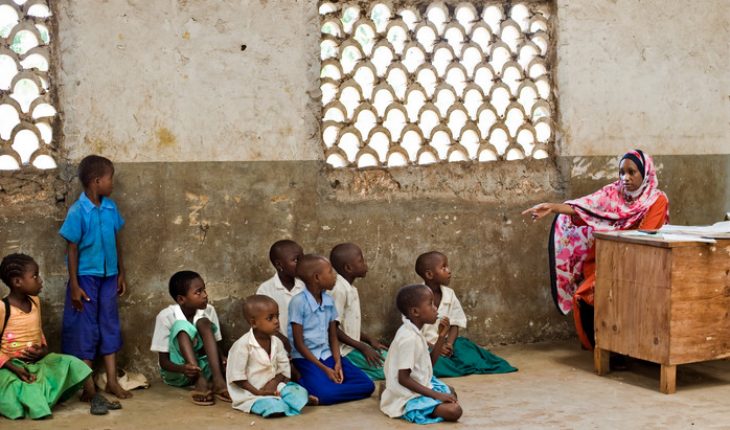Growing up in Kenya, I was one of the lucky ones. Despite falling prey to malaria about once a year – feeling sick as a dog with a profoundly painful headache and high temperature – I survived this horrible disease to see my fifth birthday. Sadly many, many other children were not so fortunate.
It was the same when I went on to become a doctor. Pacing the wards of various Kenyan hospitals, I saw too many youngsters needlessly die from malaria. Since then huge progress has been made– death rates have plummeted by 60 per cent worldwide since 2000[1] – but the disease still claims the life of a child every two minutes. Just imagine: a single tiny mosquito can devastate an entire household.
Building on the momentum of the last decade or so, the World Health Organisation (WHO) has set an ambitious goal to cut cases and deaths by 90 per cent by 2030. Getting there will not be easy. But it is worth fighting for. Loosening malaria’s grip could help unlock both human and economic potential as communities become healthier and more prosperous.
So as World Malaria Day approaches, what are three ways in which we can step up our battle against malaria?
Make health systems more robust
When it comes to fighting malaria, we know what can work – preventative tools like bed nets, rapid diagnosis and treatment – but the hard part is making sure people can get access to these interventions where they need them, when they need them.
Right now, health systems in sub-Saharan Africa are fragile and under-resourced –the recent Ebola crisis brought this to the fore. Not everyone is getting access to prevention, diagnosis and treatment. More health workers are needed to head out into remote communities, teaching them how to put up their bed nets and running rapid diagnostic tests. More healthcare facilities, with reliable supplies of medicines, are vital.
Robust and better resourced health systems put us in a stronger position to combat malaria. But their impact stretches far beyond that. They are also better equipped to manage other preventable illnesses such as diarrhoea and pneumonia. Moreover, they are capable of detecting and responding to epidemics and managing emerging threats from non-communicable diseases.
Innovate to stay one step ahead
While we do know and need to continue scaling up what works against malaria, that should not preclude us from searching for new and different tools to fight the disease. Given the parasite is so wily – constantly evolving to outwit our best attempts to swat it – we need to keep innovating in order to stay one step ahead of malaria.
That means deploying our scientific capabilities and resources. Within my organisation, scientists are working with partners from Seattle to Siaya to research medicines against malaria and even a potential vaccine. This candidate vaccine – 30 years in the making – is designed to help protect young children in sub-Saharan Africa from malaria. Last year, the vaccine candidate reached an important milestone – gaining a positive scientific opinion from European regulators. Right now, the WHO is considering how to roll out the candidate vaccine through pilot projects – in combination with other interventions like bed nets.
These are all exciting developments, which could give us more tools in our arsenal against malaria.
Partnerships can make a real difference
Driving innovation against this disease requires imagination. We need to upend the usual ways of working. So in Spain, we host an ‘open lab’, where our scientists can work with visiting researchers on diseases like malaria. By bringing together the best minds, and breaking down the usual barriers to research, we aim to stimulate fresh ideas that could help shore up our defences against malaria.
Partnerships are also critical when it comes to strengthening health systems. No single sector or organisation can manage malaria alone – it needs a combination of government, civil society and business. That’s why we’re working with Comic Relief to make grants to organisations tackling malaria on the frontline – helping ensure people can access prevention, diagnosis and treatment, at the right time, in the right place.
The ambitious WHO goal puts us at an exciting juncture. Now is the moment to step up our fight against malaria. By focusing our respective efforts and expertise on the disease, through being thoughtful and collaborative, we could help consign malaria to the history books.
[1] WHO World Malaria Report 2015
- Now is the moment to step up the fight against malaria - 19th April 2016






